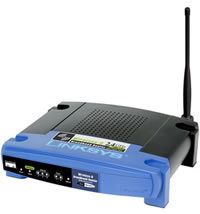The Motion Picture Association of America (MPAA) announced it would follow in the footsteps of the recording industry and legally pursue people who swap pirated copies of films over the Internet.
Dan Glickman, head of the MPAA, said legal action would be taken against “hundreds of people” seeking damages of up to $30,000 (~€23,000, ~£16,000) per shared film.
“This was not an easy decision, but it must be done now before illegal online file-sharing of movies spins out of control,” said Glickman. “Illegal movie trafficking represents the greatest threat to the economic basis of movie-making in its 110-year history.”
The crackdown will target individuals who deal in illegally copied cinema products on file-swapping networks, as well as the pirates themselves.
The MPAA claims the US film industry loses more than $3bn (~€2.3Bn, ~£1.6bn) every year in potential global revenue because of piracy. But Glickman said the figure did not take into account the losses from thousands of illegal online downloads that were swapped every day.
The MPAA draws particular attention to the popular file-sharing application, BitTorrent. Written by Bram Cohen, which is designed to offer the files as fragments for faster, easier transfer from peer-to-peer (P2P). One destination website for Bit Torrent fans, Suprnova.org, offers users free downloads of thousands of movies, TV shows, music, software and games files. The site is run on donations and some website advertising.
A parallel initiative sees the MPAA hoping that new software will encourage parents to identify their children as “file-sharing felons”. The software, designed to identify and removal of potentially infringing material and P2P applications on the PC, is part of the MPAA’s war on file sharing and will be released for free by the MPAA at a later date.
Online music file sharing is measured in billions of files downloaded, but the MPAA says that under 150,000 movie titles are traded each day in the US on file sharing services.
 Linksys’ consumer and small-business oriented
Linksys’ consumer and small-business oriented